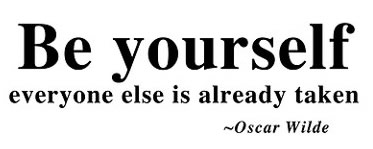Wanted: A revolution of conscience
Tuesday, May 31st, 2011 by Amanda AtwoodIs apathy Zimbabwe’s worst enemy?
Tendai Marima’s Mail & Guardian Thought Leader blog makes some very good points. You can read some excerpts here:
Stories of villagers being terrorised by soldiers patrolling the diamond fields of Marange in eastern Zimbabwe are enough to scare off any revolutionaries dreaming of a Chimurenga-style uprising. But it’s not only the very real obstacles of violent repression that could prevent Zimbabweans from fully catching the protest fever currently doing the rounds on the continent and the Middle East. The nation suffers from a grave illness: apathy.
It’s difficult to cite books or social scientists diagnosing this to be the Zimbabwean condition but personal lived experience suggests this is the case. To an extent, academics like Brian Kagoro and Glen Mpani, who have explored the reasons for Zimbabwean passivity and indifference, confirm this. In their respective works, both researchers argue that the post-colonial condition of political apathy has its roots in decades of living under a one-party state. The multiple interlocking burdens of living under an increasingly authoritarian, economically regressive regime have resulted in a population which “normalises the abnormal” as a coping strategy. In other words, it’s become so normal to hear of opposition members being beaten and jailed that it’s hard to be concerned. Indifference makes it easier to be dismissive and say “it doesn’t happen everywhere”. Because of this standard response, its sometimes difficult for the “law-abiding” rich and poor to connect their economic woes to the absurd imprisonment and torture of someone or the shortage of medicines and medical expertise in hospitals.
…
If any lessons are to be learnt from the Egyptian and Tunisian revolutions by Zimbabweans, it is that dictators can be overthrown by the people; security and stability be damned. But before any fantasies of popular uprising or ousting Zanu by the ballot can be organised by serious activists and non one-hit wonder online revolutionaries or used as campaign rhetoric by a formidable opposition party (yet to be seen) Zimbabwe needs a zenga zenga revolution, to remix Gaddafi’s words.
A revolution of conscience in every city, every street, every house, every village and every hut. Zenga zenga; every nook and cranny must be cleansed of the viral strains of apathy that allow evil to flourish and culminate in an inability to equate human rights with the right to pursue prosperity and live in a relatively stable country. If Zimbabweans truly want a change in the status quo or “no other but Zanu, but without the violence” as some desire, then it begins with this critical mass realisation. Legitimate desires for stability and prosperity can never justify indifference towards the unjust persecution of another Zimbabwean. Just as the apolitical urban middle and working classes deserve to live in peace, so too do the villagers of Marange. As do praying parishioners. And White Zimbabwean, Zimbabwean Indian and Nigerian traders and business owners harassed in the name of indigenisation. As Zimbabwe continues to discover the highs and lows of 31 years of independence, may the spirits of past liberators bless her with the realisation that indifference to the suffering of others can be cured at the church of born-again humanitarians by St Conscience, the Empathic One.










